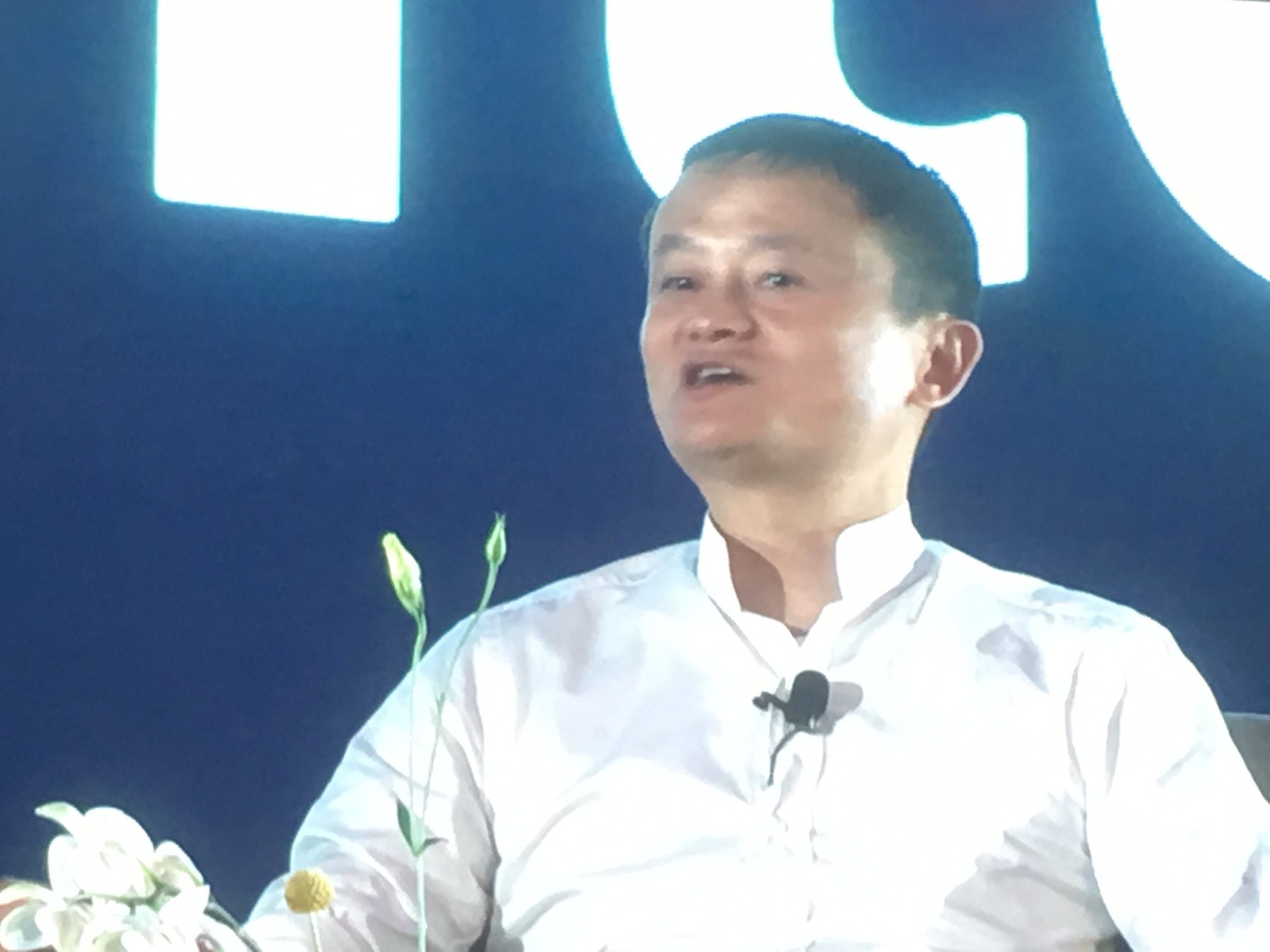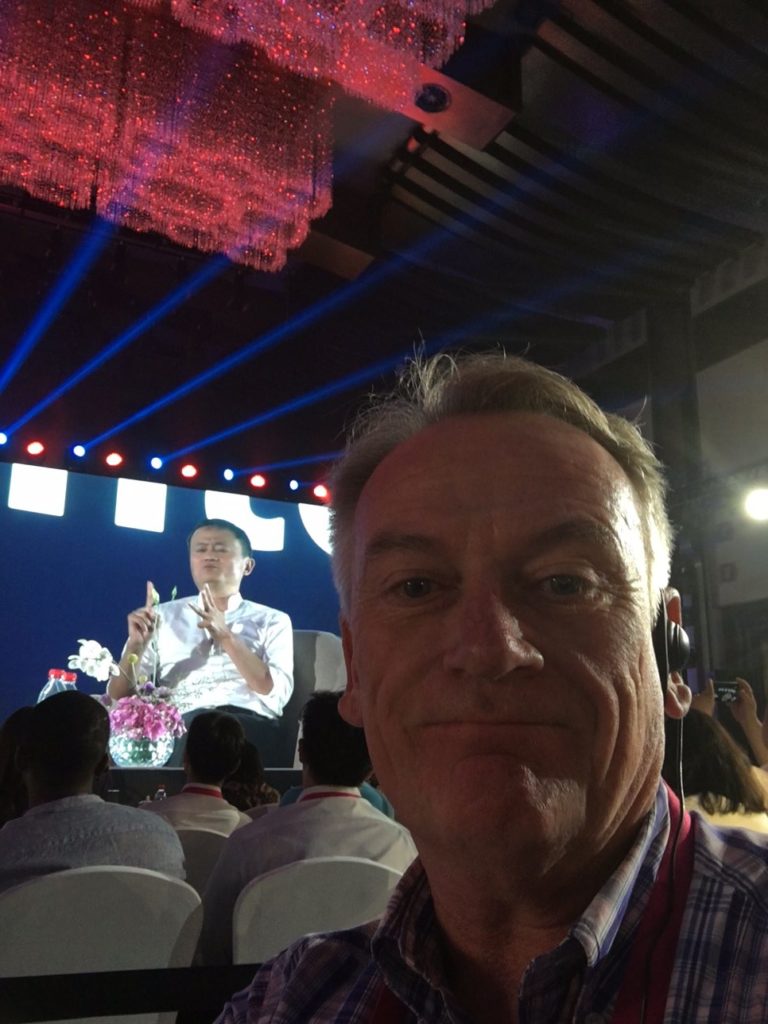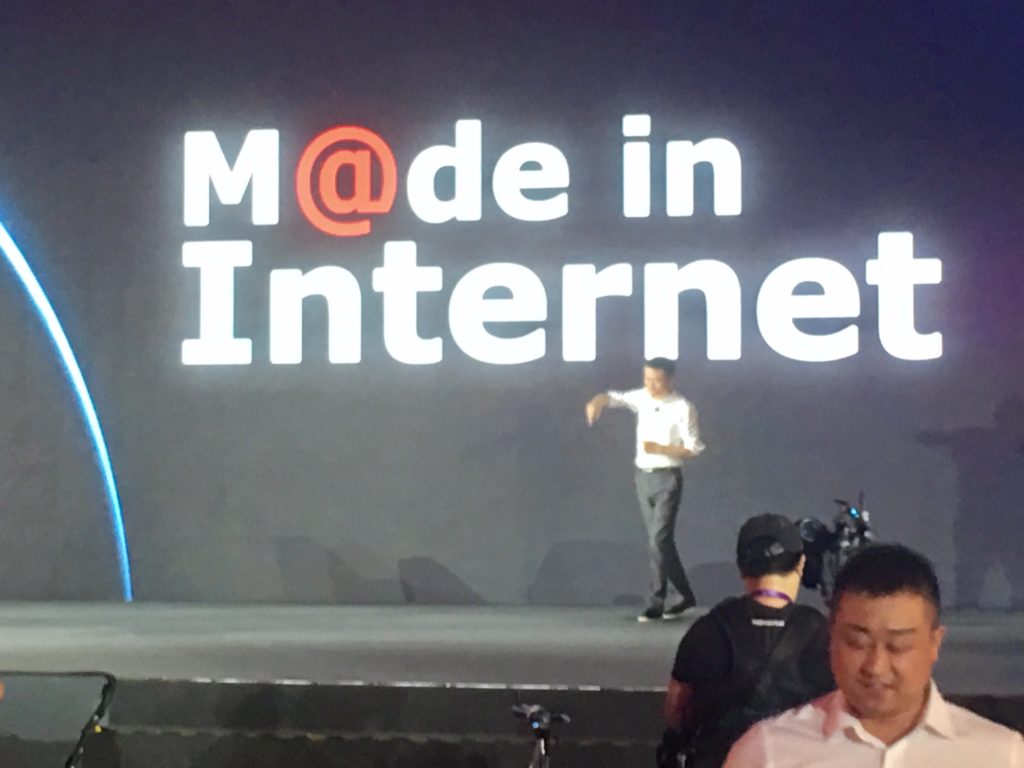
I’m spending the week in China with Alibaba and ANT Financial. More details to follow, as this is all building towards a case study chapter in my new book Digital Human, and sat amongst 2,000 fans listening to Jack Ma yesterday and his vision of the future.
Jack spoke in Chinese and I was listening with simultaneous translation, but here are my main notes and takeaways from what he said:
It is impossible to do business today offline as everything has to have something online, which is why we need more netrepreneurs.
The whole supply chain will be impacted by the internet.
I talk about these challenges at many conferences and people don't believe me, but I'm used to this. It's like climbing a mountain. What you see ahead is very different to what you see when you are half way through. What people see at the foot of the hill is very different to what you see when you're half way through. What's at the top of the mountain are those who change their mindsets and, in the next three decades, the world will change more than you can ever imagine.
In the next ten years all industries will change due to AI, big data and cloud. Industries will be turned on their head.
In the future there will be no "made in", as in Made in China or Made in India. You will just have designed, ideated, printed and made it in the internet. There is no made in China or India.
Everything can be customized. It's expensive today but if you can't do it tomorrow, you're company will fail.
Alibaba doesn't do ecommerce. We only provide the platform. So the more success that our partners have the more successful are we.
Three years ago, we bet that cloud and big data would be key. Most critical is data and computing. We put all of resources into data, computing and data services. But still what we do is just a fraction of the total. Soon we have IoT and all these devices will create data, and this is why we are panicked. There will be a huge amount of data to deal with.
In the age of data we can no longer have this idea of controlling everything. A monopoly is the idea of the industrial era. We just want to help people, not be a monopoly. We want to connect everyone.
We provide payments and logistics and shipping. We can deliver anywhere in China within 24 hours. That's too slow for Beijing and Shanghai but, for the villages, we want to build that infrastructure across all China. We will never be a logistics company however. We partner with others for this. So we focus on the things that others cannot do or are not willing to do. We focus on things SMEs cannot do. We only want to compete with companies that won't share or partner with others.
If you are having a difficult time as a start-up we were like that, but we had a dream and now we have got there. Now we are a huge company, but if we stay there and don't share those riches, then everyone will hate us. So we have to make everyone richer. If you are the only rich person in a village of paupers, the paupers will kill you.
Alibaba is a tool for everyone that should benefit everyone and especially young people. Remember I was a teacher and any company will diminish ultimately. I want people to say Alibaba is great, not because we sell a lot of product, but because we helped young people and our society.
Management. The word is there for regular companies. At Alibaba we treat it more like governing an economy, as we have to manage so many companies dependent upon us as partners. Any SME with an idea now has a way to realize that idea. Alibaba marketplace can find you buyers and sellers; we can provide you with computing through cloud; we can distribute and deliver your products. By 2036 we will have built an economy that can support 100 million businesses for billions of users. We won't own that economy. We will just govern it.
Having great, smart experiences will be the keywords for our next decade.
Fintech is there to empower the financial sector. I want to do that for consumers so they have equal access to finance. I don't want people to be waiting for money or for pity. I want to empower them through access and inclusion, and get things to people a lot faster and easier.
This year is very different to five years ago. This year we focus upon Made in Internet. Your business model is to redefine your consumers, supply chain and financing methods for the Made in Internet age. I tell all retailers and manufacturers and banks to do this urgently as I've been saying it for over a decade. You don't have so much time left.
Meantime, if you like these comments, then there’s an interesting book about Jack Ma and Alibaba that I have referenced before, and here are the top 10 messages that he gives people for business:
- On chasing dreams – dream big really big
- Remember: the bigger the problem, the greater the opportunity
- Today is tough but the day after tomorrow is beautiful
- Focus on the customer and the rest will follow
- Learn from competitors but never copy them
- It’s more important to be best than first
- Find opportunity in crisis
- Use your competitors strength against it
- Don’t dwell on mistakes
- Have the team work for the goal, not the boss
Finally, Jack also spoke at the Alibaba investment day last month in English about his vision-driven company. Here is that presentation.
Chris M Skinner
Chris Skinner is best known as an independent commentator on the financial markets through his blog, TheFinanser.com, as author of the bestselling book Digital Bank, and Chair of the European networking forum the Financial Services Club. He has been voted one of the most influential people in banking by The Financial Brand (as well as one of the best blogs), a FinTech Titan (Next Bank), one of the Fintech Leaders you need to follow (City AM, Deluxe and Jax Finance), as well as one of the Top 40 most influential people in financial technology by the Wall Street Journal's Financial News. To learn more click here...



